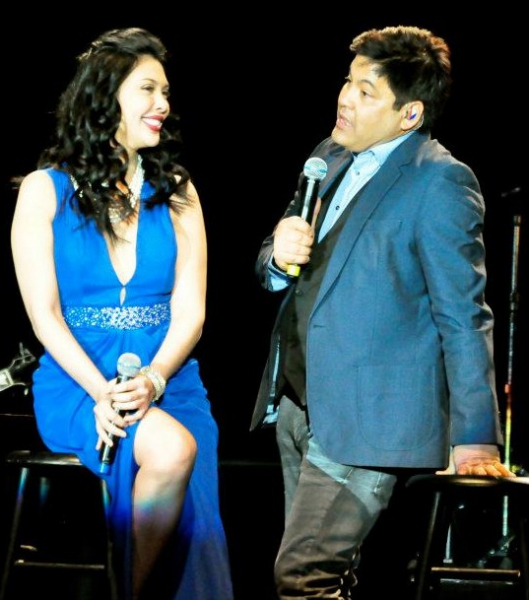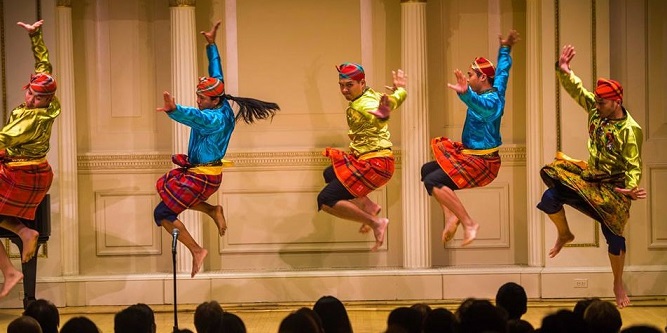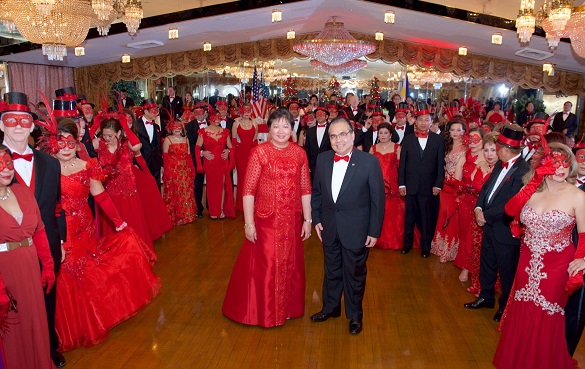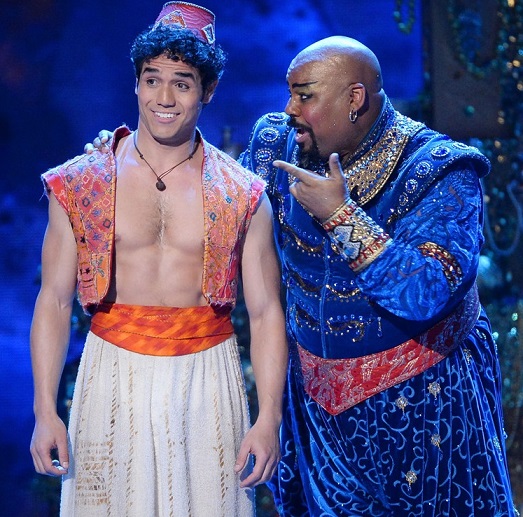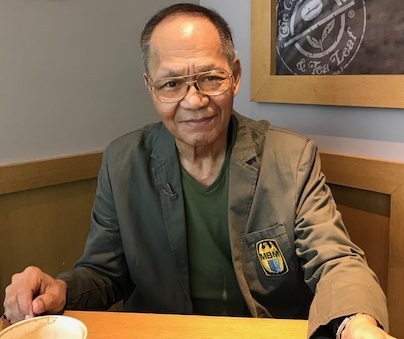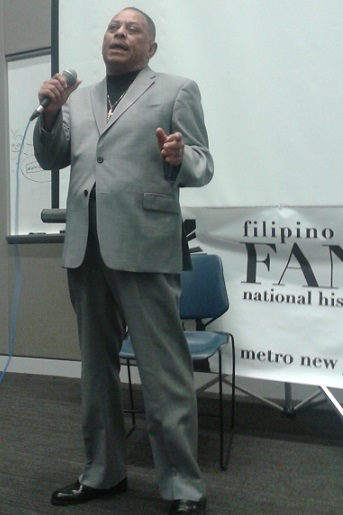Joe Bataan: Playing catch-up with his Filipino roots
By Cristina DC PastorHe strode into the room trailed by his family, all the way down to his granddaughter. The venerable Joe Bataan, the much-touted King of Latin Soul, was impeccably dressed like he was going to church: gray linen suit over black turtle neck, a gold crucifix chain dangling from his neck.
“I’m 70,” said Bataan at the January 15th Filipino American National Historic Society-Metro New York (FANHS-NY) reception honoring him with a Lifetime Achievement Award. The reason he has remained such a spirited person through 46 years in the music business is that “the Big Boss has been guiding me.”
To those who began to follow Bataan’s career from the hardscrabble streets of East Harlem all the way to his rise as a top Latin-style musician for Fania Records in the 1960s, thanking the Creator may sound a little extreme. At the height of his career, as he was making his mark through his own musical style – a little bit Latin, a little bit doo wop – Bataan was quite a formidable name. His own Ghetto Records was reportedly financed by a local gangster. Reports place him as a street thug in his earlier years, a gang leader to Latino teens. Until music became his salvation.
He ruled the airwaves in the 1970s, the pop coinage called “salsoul” used exclusively on him. From Ghetto Records, he founded the Salsoul label and produced one hit album after another. His most popular single was “Ordinary Guy,” a romantic ballad with touches of R&B and the blues.
FANHS-NY President Kevin Nadal said Bataan represents “everything that is good” about the Filipino in New York.
“He did it all without having the resources of big (recording) labels and became successful on his own doing with hard work and perseverance,” he said.
And then, he was gone. Just like that. At the cusp of hip-hop’s domination, Joe Bataan would seek retirement from music. During his hiatus of about 20 years, he became a youth counselor and toured reformatory schools and colleges, speaking to young people about God.
Recalling his own coming-of-age during the FANHS event, he said he did his own questing about identity. He grew up not knowing what he was and to which ethnicity he belonged. “My mother is African American from Newport News, Virginia; my father is from the Philippines, my heart is Latino. Neighbors would ask, what’s this guy?”
He persisted, he wedged himself nicely within the Latino community, learned their language and grooved into their music. “The Latinos were the first to embrace me,” he said.
He remembered meeting three Filipinos growing up in his mostly-Latino neighborhood: “Filipinos who loved to play cards.” Though he couldn’t speak Tagalog, he tried to decipher what they were saying based on what little he knew of his father’s language and discovered that “every third word I recognized was a cuss word.”
For now, Bataan appears to be playing catch-up with his Filipino roots. Last year, he traveled to the Philippines for the first time to revisit the uncharted half of his identity. He gave a concert in Puerto Galera in Mindoro province.
“I need to learn Tagalog,” he told his smitten New York audience. “Remind me to sign up for Tagalog classes.”
——————————————————-

The chocolate for anti-aging, weight loss and energy.
For more information, click here.


